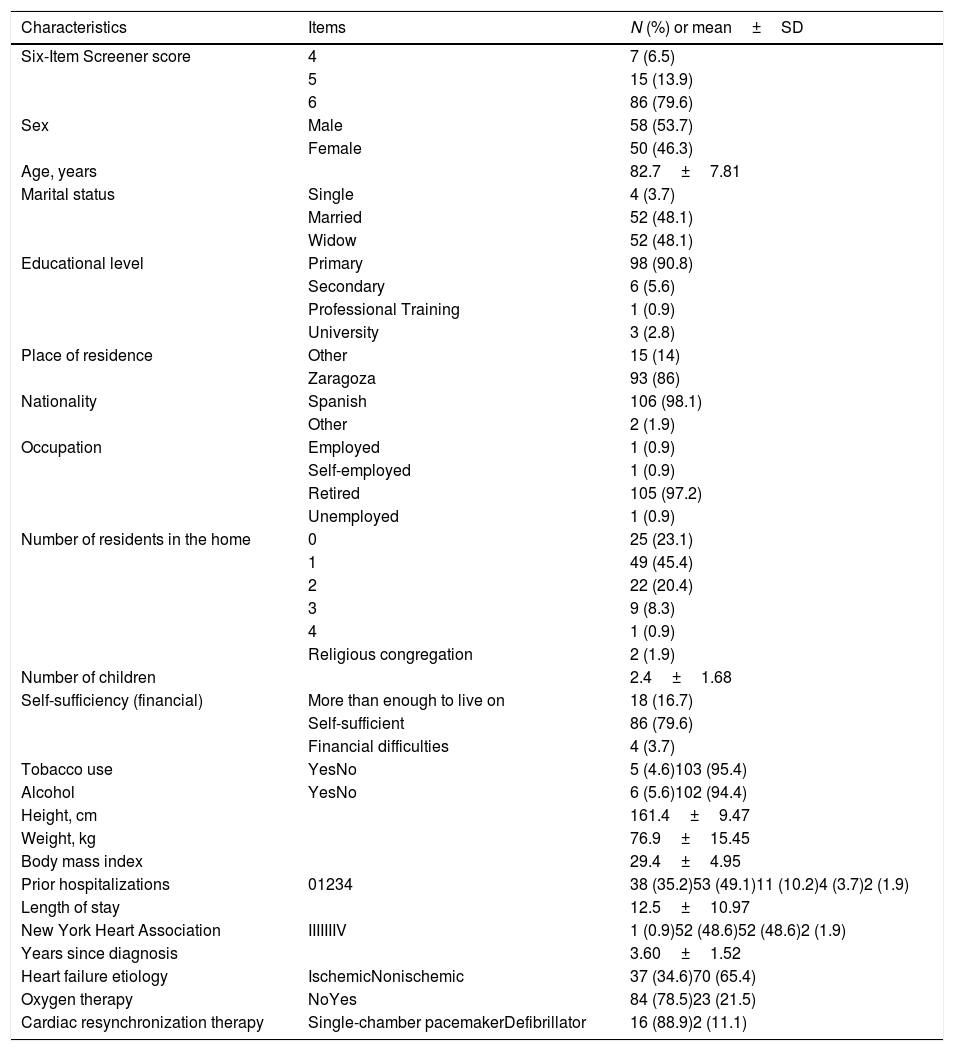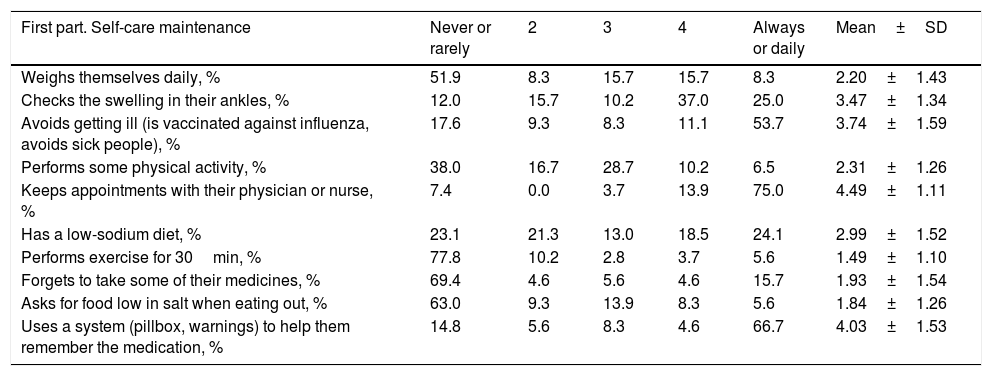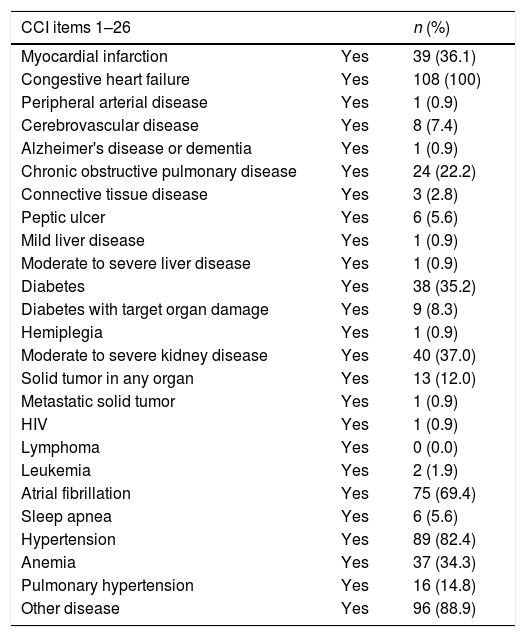There is scarce evidence relating to self-care of heart failure (HF) in Spain. In particular, there is a need to establish patients’ level of understanding of HF, as well as their ability to recognize signs and symptoms of decompensation.
Patients and methodsCross-sectional study to determine the level of self-care in a population of Spanish patients admitted to hospital with a primary diagnosis of decompensated HF. A convenience sample of 108 patients (50 women and 58 men) aged 83±8 were recruited to participate in this study.
ResultsThe Self-Care of Heart Failure Index version 6.2 was used to quantify self-care in our sample. Mean and standard deviation from the Self-Care of Heart Failure Index self-care maintenance subscale were: (a) “exercise for 30 minutes”, 1±1; (b) “forget to take one of your medicines”, 2±2; (c) “ask for low-salt items when eating out or visiting others”, 2±1. A percentage of 67.6 had experienced shortness of breath or ankle swelling in the past month. However, the vast majority of our patients were unlikely to independently implement a remedy: (a) reduce salt, 2±1; (b) reduce fluid intake, 1±1; (c) take an extra diuretic, 1±1. Over 50% of our sample felt confident or very confident at following professional advice (3±1), keeping themselves free of symptoms (3±1), recognizing changes in their condition (3±1) and evaluating the significance of such changes (3±1).
ConclusionsHF patients have a significantly low level of self-care when compared with HF patients from other countries, especially when it comes to managing their condition. Self-care promotion should be a priority for all healthcare professionals involved in the care and management of HF patients.
La información sobre el autocuidado en la insuficiencia cardiaca (IC) en España es escasa. En concreto, existe la necesidad de fijar el nivel de comprensión de los pacientes sobre la IC, así como su capacidad para reconocer los signos y los síntomas de la descompensación.
Pacientes y métodosEstudio transversal para determinar el nivel de autocuidado en una población de pacientes españoles ingresados en el hospital con un diagnóstico primario de IC descompensada. Para el estudio, se reclutó una muestra de conveniencia integrada por 108 pacientes (50 mujeres y 58 hombres) con una edad de 83±8 años.
ResultadosPara cuantificar el autocuidado en nuestra muestra se empleó el Índice de Autocuidado en Insuficiencia Cardiaca versión 6.2. La media y la desviación estándar de la subescala de mantenimiento de autocuidado del Índice de Autocuidado en Insuficiencia Cardiaca fueron: a) «ejercicio durante 30 minutos», 1±1; b) «olvida tomar una de sus medicinas», 2±2; c) «pedir productos bajos en sal cuando sale a comer o de visita», 2±1. En el mes previo, el 67,6% experimentó dificultad para respirar o inflamación del tobillo. Sin embargo, era improbable que la gran mayoría de nuestros pacientes implementaran de forma independiente un remedio: a) reducir sal, 2±1; b) reducir la ingesta de líquidos, 1±1; c) tomar un diurético extra, 1±1. Más del 50% de los pacientes de nuestra muestra se sintieron confiados o muy confiados siguiendo los consejos profesionales (3±1), manteniéndose libres de síntomas (3±1), reconociendo los cambios en su enfermedad (3±1) y valorando la importancia de dichos cambios (3±1).
ConclusionesAl comparar a nuestros pacientes con IC con los de otros países el nivel de autocuidado es significativamente bajo, especialmente en lo que se refiere a la gestión de su enfermedad. La promoción del autocuidado debería ser una prioridad para todos los profesionales de la salud involucrados en la gestión de los pacientes con IC.
Article
Diríjase desde aquí a la web de la >>>FESEMI<<< e inicie sesión mediante el formulario que se encuentra en la barra superior, pulsando sobre el candado.

Una vez autentificado, en la misma web de FESEMI, en el menú superior, elija la opción deseada.

>>>FESEMI<<<










